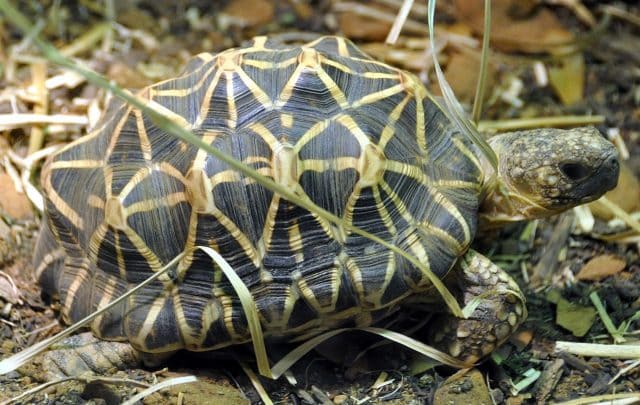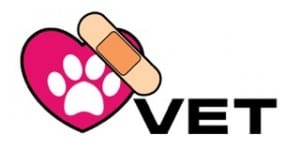Type the name of the breed you're looking for below
[wpdreams_ajaxsearchlite] Don't see the breed your're looking for? Click here and let us know!
Indian Star Tortoise
| Place of Origin and Range | The Indian star tortoise is a species of tortoise found in dry areas and scrub forest in India and Sri Lanka. |
| Description | The carapace of G. elegans is very convex, with dorsal shields often forming humps; the lateral margins are nearly vertical; the posterior margin is somewhat expanded and strongly serrated. The first vertebral scute is longer than broad, and the others are broader than long, with the third at least as broad as the corresponding costal. The plastron is large, truncated or openly notched in front, and deeply notched and bifid behind; the suture between the humerals is much longer than that between the femorals; the suture between the pectorals is very short; the axillary and inguinal sutures are rather small. The head is moderate in size, with the forehead swollen, convex, and covered with rather small and irregular shields; the beak is feebly hooked, bi- or tricuspid; the edges of the jaws are denticulated; the alveolar ridge of the upper jaw is strong. The carapace is black, with yellow areolae from which yellow streaks radiate; these streaks are usually narrow and very numerous. The plastron likewise has black and yellow, radiating streaks. |
| Morph Patterns Available | Yes |
| Adult Size | Can grow to 10 in(25cm) |
| Accommodation | Arid Rocky savannah, or dry forest habitat. To avoid injuries anchor any rocks in the vivarium before you add the substrate. In this case sand. You will want to include a large dish for bathing and soaking in to improve shedding. Always include a day basking spot at 80'F(27'C). Along with multiple hides. Minimum 2 x 8 feet for an adult. |
| Lifespan | Can live 10 + years |
| Feeding / Diet | They are mostly herbivorous and feed on grasses, fallen fruit, flowers, and leaves of succulent plants, and will occasionally eat carrion. In captivity, however, they should never be fed meat. |
| Other Considerations | A large number of specimens of this species are found in the illegal wildlife trade in India. Few studies exist which have quantified wild populations and the effect of trade on them. Watch for theses health concerns carefully with your tortoise. Vitamin A Deficiency: Vitamin A is an important nutrient for your tortoise’s health. It is found in his diet in the form of leafy green, orange or yellow vegetables, liver, and fish. If your tortoise is not getting enough Vitamin A, he can suffer serious health problems. Always check to make sure that your tortoise does not have swollen eyelids, as this is the main sign of a Vitamin A deficiency. Also, check for weight loss, nasal discharge and infected skin. Any of these symptoms could point to a deficiency. If you think your tortoise may not be getting enough Vitamin A, you should take him to the veterinarian to get a firm diagnosis. Shell Problems: Your tortoise's shell is very important to his overall health. There are many potential problems that could occur, so you should be on the lookout at all times. Respiratory Disease: Respiratory infections have symptoms similar to vitamin A deficiency, including swollen eyelids and runny nose, so you should take your tortoise to the veterinarian to get a proper diagnosis if you suspect either. More serious infections will be characterized by breathing through the mouth, mucus in the mouth, and wheezing. Always make sure your tortoise’s environment has the proper amount of humidity, as this will help prevent respiratory problems. |



